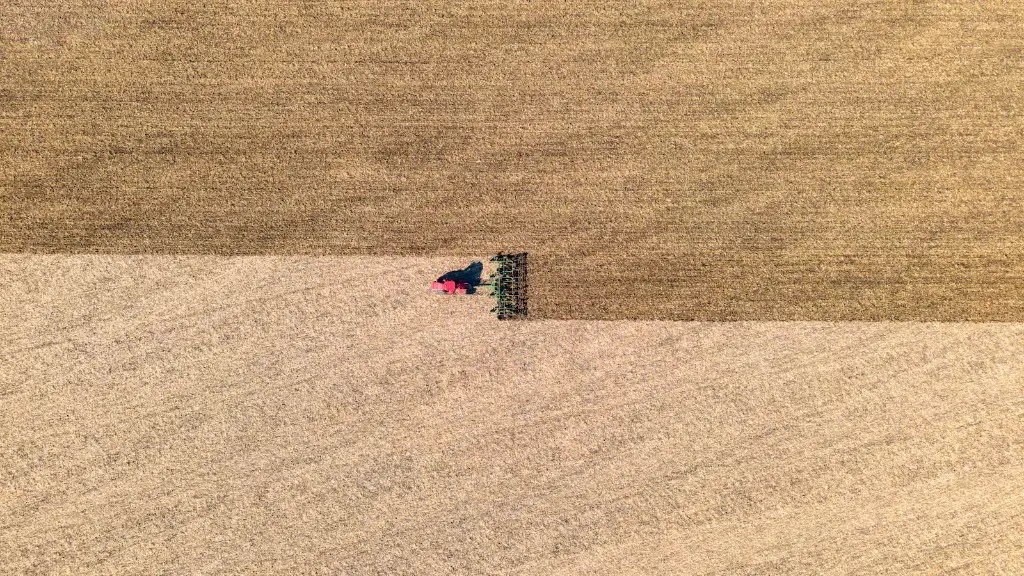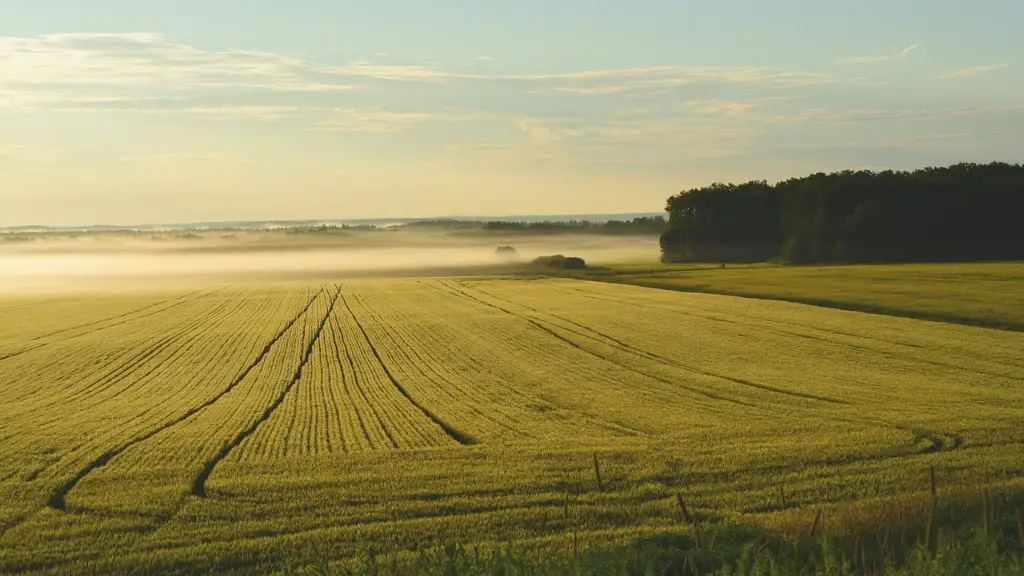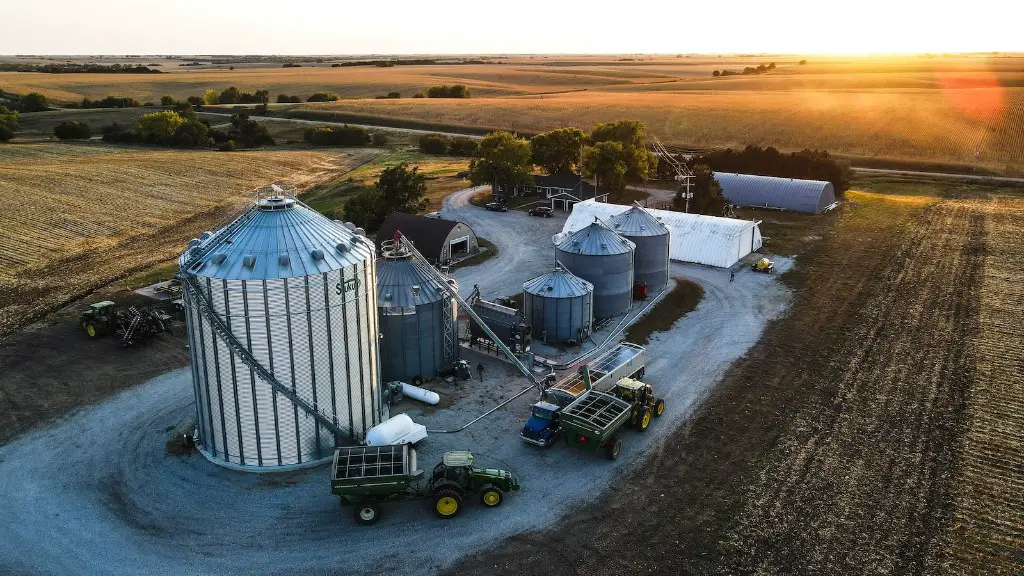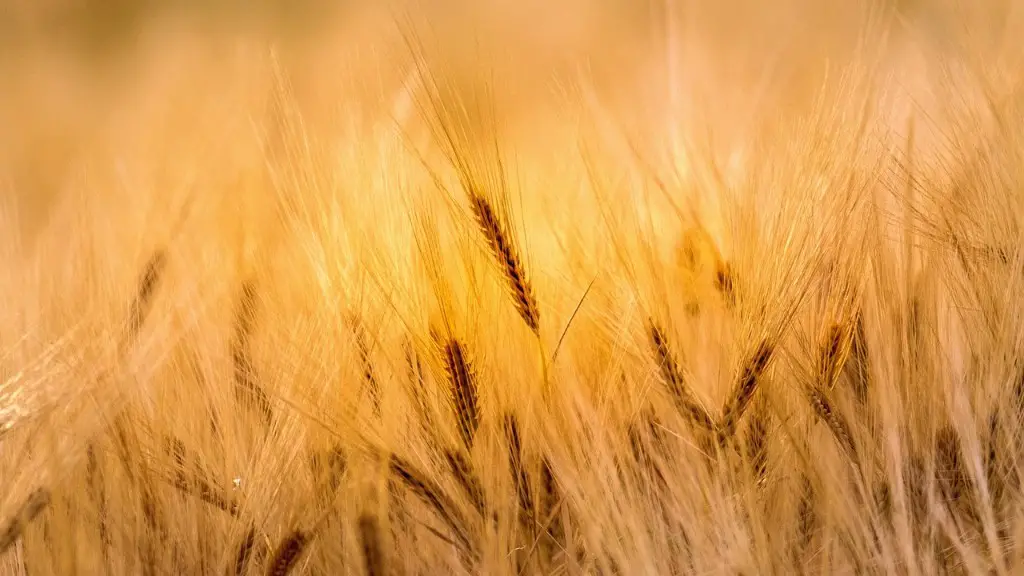Agriculture is very important because it is the foundation of human civilization. Agriculture allowed for the domestication of plants and animals, which led to the development of civilizations. Agriculture allowed for the growth of cities and the rise of civilizations. Agriculture is still the foundation of human civilization.
Agriculture is very important as it is the main activity that helps to ensure food security. It is the process of producing food, fiber, and other desired products by cultures through the cultivation of plants and other organisms. Agriculture was the key development that led to the rise of civilization, allowing humans to live in one place and develop complex societies. It is also a significant source of employment in many countries.
Why is agriculture important?
Agriculture is a vital industry that employs a large number of people and generates a significant amount of food each year. Around half of the world’s habitable land is used for pasture or cropland, which provides habitat and food for many different species of animals and plants.
Agriculture is the source of the world’s food supply. No matter where or what you are eating, the ingredients in your meals came from somewhere. All roads lead to agriculture.
Why was agriculture considered the most important
Farming has been a key driver of human civilization, enabling us to grow all the food we need in one place. This has led to massive population growth and the development of cities and trade. Today, farming continues to be an important part of the global economy, providing food and jobs for billions of people.
Agriculture plays a vital role in our lives – it provides us with food, clothing, and shelter. It helps us to enjoy a higher quality of life. Agriculture helps to ensure that we have a healthy and sustainable food supply, and it helps to protect our environment.
What are 5 important of agriculture?
The term agriculture can be defined as the cultivation of animals, plants, and fungi for food, fiber, biofuel, drugs and other products used to sustain and enhance human life. Agriculture was the key development in the rise of sedentary human civilization, whereby farming of domesticated species created food surpluses that allowed people to live in cities. The study of agriculture is known as agricultural science.
The history of agriculture dates back thousands of years, and its development has been driven and defined by greatly different climates, cultures, and technologies. Agriculture began independently in different parts of the globe, and included a diverse range of taxa. At least 11 separate regions of the Old and New World were involved as independent centers of origin. Wild grains were collected and eaten from at least 105,000 years ago. Pigs were domesticated in Mesopotamia around 13,000 BC, followed by sheep between 11,000 and 9,000 BC. Cattle were domesticated from the wild aurochs in the areas of modern Turkey and Pakistan around 8,500 BC. Sugarcane and some root vegetables were domesticated in New Guinea around 7,000 BC, followed by sorghum and millet in the Sahel region of Africa by 5,000 BC
Farming is a great way to stay healthy and fit. It is also a very challenging and stimulating occupation. Farming provides a source of income in rural areas and helps to develop the younger generations. Farming can also help the environment to thrive.
What are the 10 benefits of agriculture?
The importance of agriculture in Nigeria cannot be overstated. It is the backbone of the Nigerian economy, providing food for human consumption, raw materials for industry, employment for labour, and foreign exchange through exports. It also helps to protect the environment, preserve species, and boost exports. Agricultural production is a major source of income for Nigeria, and it plays a vital role in the country’s economic development.
The connection between agriculture and the growth of cities and civilizations is clear – without the ability to farm and raise crops and animals, early humans would not have been able to support large populations. The development of agriculture allowed for the growth of cities and the rise of civilizations. Today, the global population has reached seven billion people due largely to the fact that we can farm to meet the demand for food.
How did agriculture change society
More abundant food supplies could support denser populations, and farming tied people to their land. Small settlements grew into towns, and towns grew into cities. Agriculture produced enough food that people became free to pursue interests other than worrying about what they were going to eat that day. This led to the development of civilizations.
The poorest people in society benefit the most from agricultural growth, as it increases the demand for their labor. Agricultural growth also increases the probability of getting a job, and may lead to increased salaries, thus increasing the income that can be earned from selling labor.
How does agriculture impact us today?
Agriculture plays a vital role in our society and impacts us in many ways. It provides us with food and livelihoods, raw materials for products, and builds strong economies through trade. Agriculture is essential to our way of life and we must do everything we can to protect it.
The Feeding the Economy report provides valuable insights into the sectors that are essential to the economy and how they contribute to job growth, wages, and tax revenue. These industries are also important to the global economy, as they export billions of dollars’ worth of goods and services.
How does agriculture change people’s lives
When early humans began farming, they were able to produce enough food that they no longer had to migrate to their food source. This meant they could build permanent structures, and develop villages, towns, and eventually even cities. Closely connected to the rise of settled societies was an increase in population.
Urban farming is starting to become quite popular as the benefits are becoming more and more acknowledged. These benefits include lower greenhouse gas emissions, minimal transportation requirements, and reduced energy use for food production. With the growing popularity of urban farming, it is likely that we will see even more innovative ways to farm in cities in the future.
Why is it better to live in agricultural society?
In an agricultural society, people generally live in one place permanently and farm the land nearby. This is in contrast to nomadic hunter-gatherer or semi-nomadic pastoral societies, where people move around constantly in search of food. Agricultural societies tend to be more settled and have a more complex social structure than nomadic societies.
The agricultural revolution is one of the most important events in human history. It led to the domestication of plants and animals, which in turn allowed for the growth of civilizations. The agricultural revolution had a variety of consequences for humans, which include everything from societal inequality to a decline in nutrition. The agricultural revolution is also responsible for the rise of infectious diseases, as domestic animals are a major source of these diseases.
Why agriculture is the backbone of the economy
The agriculture industry is vital for the economy as it provides food and raw materials for industry. It is also a major source of employment, with millions of people working in the sector. The sector is also a key driver of rural development, and plays a vital role in poverty reduction.
Negative impacts from agriculture include pollution and degradation of soil, water, and air. However, agriculture can also have positive impacts on the environment. These positive impacts include trapping greenhouse gases within crops and soils, and mitigating flood risks through the adoption of certain farming practices.
Conclusion
Agriculture is very important because it is the main source of food for humans and animals. It is also responsible for the production of clothing and other materials used by humans. Agriculture is one of the most important industries in the world and it plays a vital role in the global economy.
Although it is often seen as a simple and old-fashioned way of life, agriculture is actually a very complex and important industry. It is the foundation of our food system, and plays a vital role in our economy and in our environment. Without agriculture, we would not be able to feed the world’s population.





